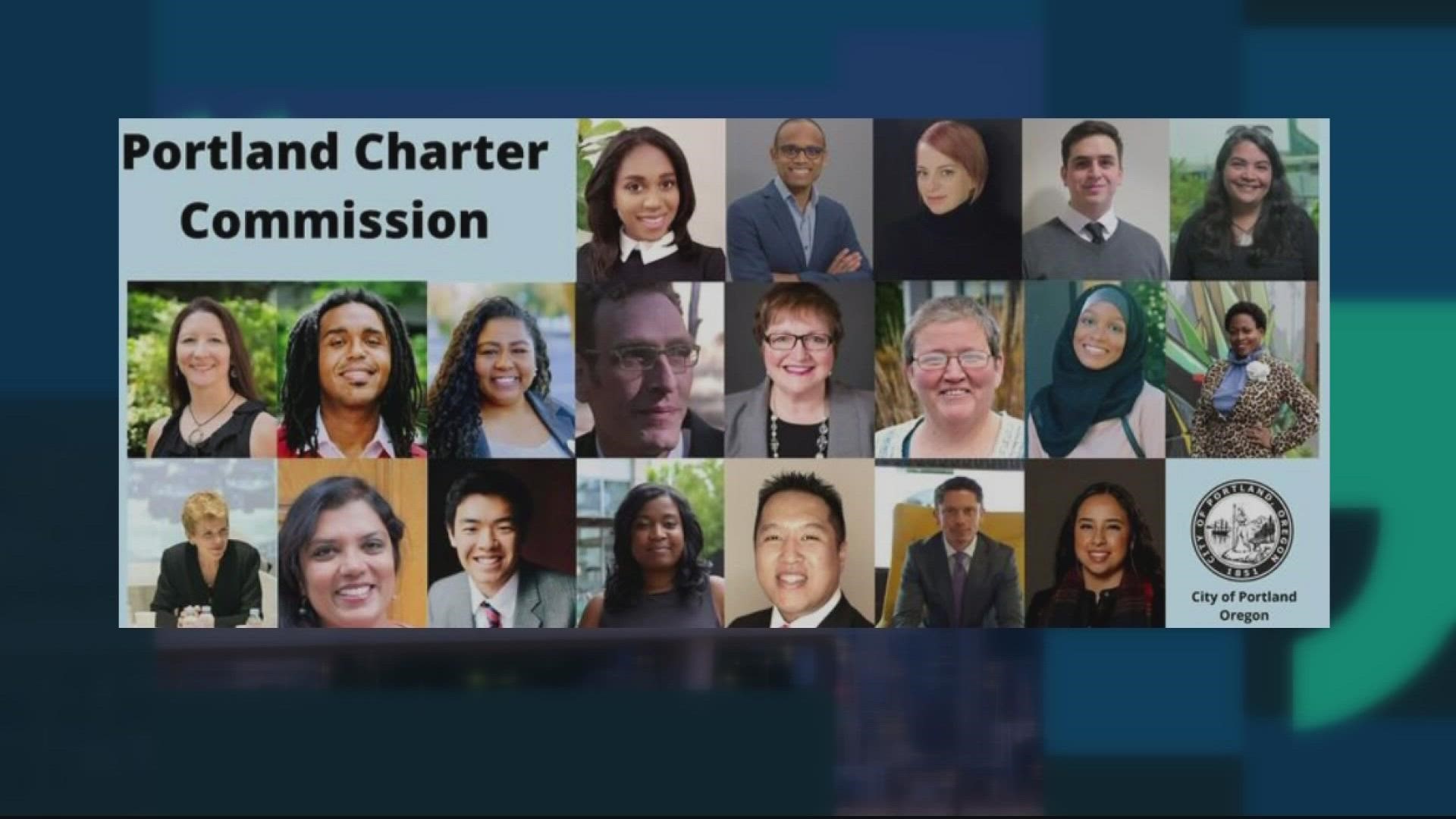PORTLAND, Ore. — Every 10 years, a group of 20 community leaders is selected by the Portland City Council to spend two years reviewing the city of Portland's charter. This includes reviewing Portland's form of government, a commission-style format that no other major city in the U.S. uses.
Portland's city government is made up of the mayor and four elected commissioners. Unlike city council-style governments, the mayor and commissioners are elected citywide, not by localized geographical districts.
A second major difference is how much power Portland's city commissioners have. In Portland, the mayor assigns each commissioner bureaus to lead. For example, the mayor is also the police commissioner, Commissioner Dan Ryan heads up the Housing Bureau and Commissioner Mingus Mapps is in charge of the Water Bureau.
If the mayor were to reassign one of those bureaus, or the commissioner in charge were to lose their seat, that creates instability among bureaus that employ hundreds of people. This instability can create silos and an unwillingness of people to cooperate with other bureaus because you have to look out for yourself.
For example, according to some politicians, this form of government has also presented hurdles when it comes to getting Portland's Safe Rest Villages for the homeless up and running.
RELATED: Mayor Ted Wheeler issues emergency declaration to centralize Portland's homelessness services
During a news conference last week about housing, Commissioner Ryan said the Safe Rest Village process has been so delayed because of "predictable issues with the supply chain ... and then the predictable issue is 'not in my bureau.'"
When asked if there are bureaus refusing to help ease the logjams, Ryan responded, "People have plans for their bureaus, and when you're in an emergency, that's a hiccup to those plans."
Andrew Speer serves on Portland's Charter Commission, the group that's reviewing the city's commission-style form of government.
"Commissioners currently should not be managing and running bureaus, that's a key thing," Speer said. "I think yes, we should move away from our current form into something else ... not to say you are solving all problems with that one single change, but you're heading in a direction."
Speer and the rest of the charter commission will have a recommendation for change by the end of March.
Citizens will be invited to a series of public meetings, and eventually their recommendations will be placed on a ballot.
Those interested in learning more about the Charter Commission can do so here, and Portland residents can sign up to give public testimony on March 10 here.

